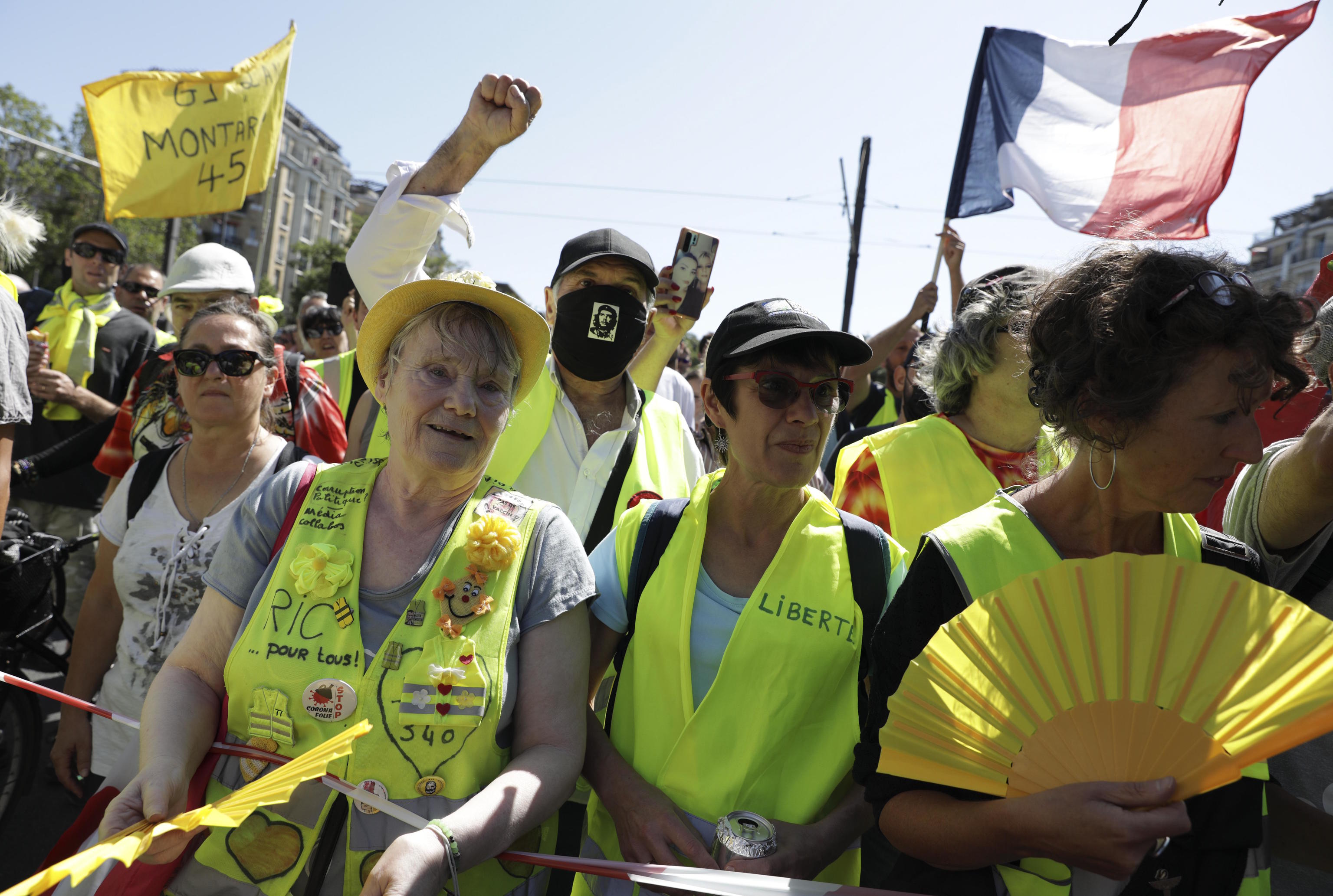The specter of the yellow vests, the movement against the rise in fuel taxes that paralyzed the country and mobilized over three million French citizens at the end of 2018, is looming over Emmanuel Macron once again with a date marked in red on the calendar: September 10.
Under the slogan "Bloquons tout!" ("Let's block everything!"), the drumbeat has been sounding on social media since mid-July, in reaction to the "social regression" budget anticipated by Prime Minister François Bayrou in the middle of summer. The leader of La France Insoumise, Jean-Luc Mélenchon, has joined the "popular initiative" and aims to channel and capitalize on the protests, but the unions are divided, and doubts persist about the origin and scope of the movement, and its coordination capacity.
The streets, as is known, occasionally replace the Parliament in France as the true third power, with revolutions capable of overthrowing governments and forcing political shifts. It remains to be seen whether the rejection of social cuts (and the elimination of two public holidays) announced by Bayrou will materialize into a genuine movement on September 10, distantly related to the 15-M movement and preceded by citizen assemblies in the midst of the summer heatwave.
"The reasons for the anger of the yellow vests are not only intact but have been amplified," argues unionist and professor at the Montpellier Academy Sabine Raynaud. "The pension reform, early elections, and this Budget that brutally attacks workers' achievements have worsened the situation."
"We must be cautious because this movement is still in limbo, and its forms are confusing," warns historian and expert in social movements Marion Fontaine in Le Monde. "At the moment, what exists are only anticipations by political and union actors. From a historical perspective, all of this fits into an extremely short chronology, although its origins can be traced back to the first decade of the century with the indignados movement and later with the yellow vests protests and against the pension reform."
"Macron's France is the France of the poor: the feeling of abandonment persists, and the challenge has only grown," warns Jacline Moraud, one of the driving forces behind the yellow vests movement, who has expressly supported the organized protests on September 10.
The goal of "Bloquons tout!" is to paralyze France for a day, with strikes in shops and public transport, disruptive actions at airports and train stations, roadblocks at highways and refineries... Taxi drivers and farmers, two sectors in conflict in recent months, have announced their intention to join the mobilization. The call urges the French not to shop in supermarkets that day, boycott major banks as "accomplices of speculation," and not use digital platforms like Amazon or Uber.
The union division and the call for an alternative to the general strike on September 18 may detract support from the September 10 rally, increasingly perceived as an initiative of the radical left. The leader of La France Insoumise indeed announced on August 22 his full support for the initiative.
"September 10 must be a day of general blockade and general strike for workers," declared Mélenchon to hundreds of LFI militants in Châteauneuf-sur-Isère. "This is our strategy: to help and serve the movement. We are helping them self-organize," he stated.
The far-right National Rally (RN) of Marine Le Pen has openly distanced itself from the protest. Its protégé, Jordan Bardella, emphasized over the weekend that the goal of his party is to call for new early elections after the expected fall of Bayrou next week.
Interior Minister and leader of The Republicans, Bruno Retailleau, preemptively dismissed the movement, linking it to the extreme left: "This slogan of blocking everything is stupid. The country does not need to be blocked; on the contrary, what is needed is to move forward."
"I don't think it's a broad movement, but there may be spectacular actions," acknowledged Retailleau. "I have sent a telegram to the prefects to be prepared, in case there are indeed attempts to block strategic sites and essential infrastructure of the country," he asserted.
